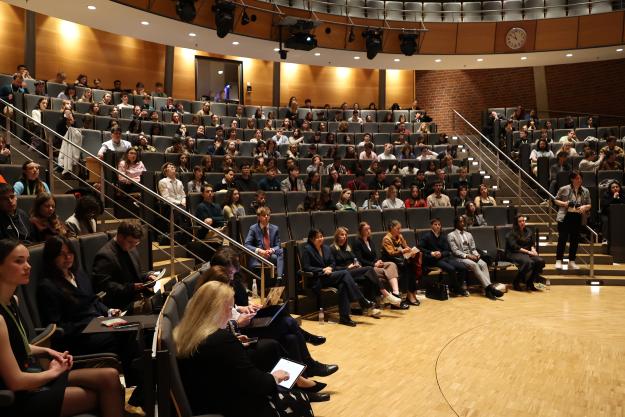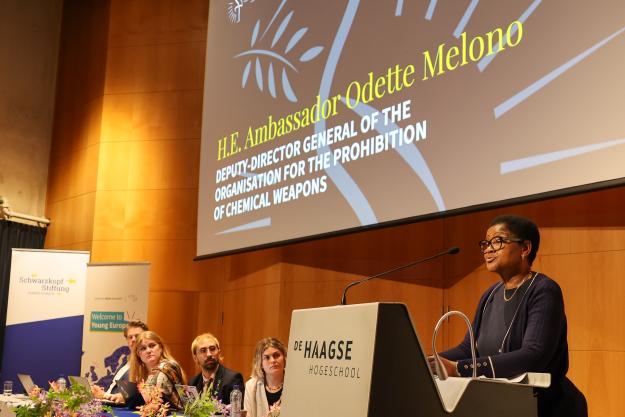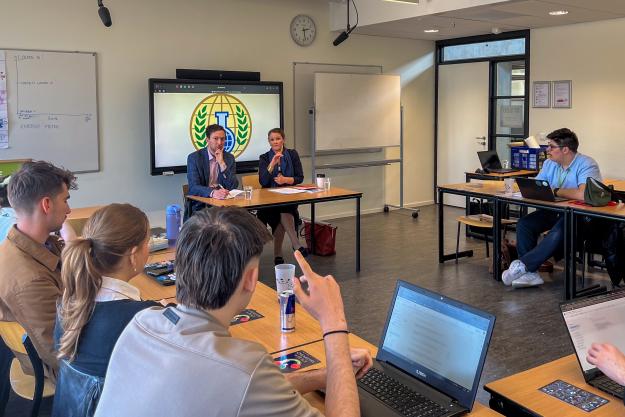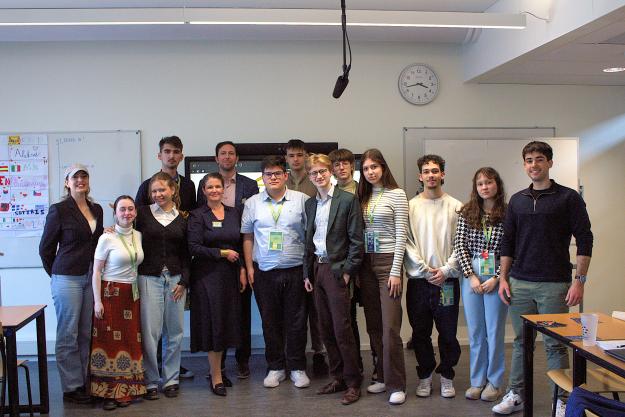The Organisation for the Prohibition of Chemical Weapons (OPCW) with financial support from the European Union provided sponsorship and substantive guidance to the European Youth Parliament (EYP) session in The Hague which brought together young people from across the continent.
The EYP is a non-partisan peer-to-peer educational programme that brings together youth across Europe to simulate democratic decision-making. Through committee work and General Assembly debates, young people gain first-hand experience in policymaking, intercultural dialogue, and global diplomacy.
More than 200 young delegates from across Europe gathered in The Hague in April for the 101st International Session of the European Youth Parliament (EYP) to debate some of the most pressing global challenges under the overall headline of "Young visions of Peace and Security". Over the course of the week, participants developed and adopted 15 policy resolutions , including one focused on the non-proliferation of chemical weapons.
OPCW Involvement
The OPCW supported this initiative through expert briefings, a Headquarters visit, and participant sponsorship, made possible by the European Union. These efforts reflected the OPCW's commitment to engage youth in the implementation of the Chemical Weapons Convention (CWC) and building capacity among the next generation of global leaders.
As part of the programme, the OPCW hosted an expert session with the Committee on Security and Defence II (SEDE II) to explore key challenges in chemical non-proliferation. The dialogue addressed CWC's national implementation, emerging technologies such as AI and biotechnology, the role of disinformation, and the importance of compliance and verification.
OPCW staff also facilitated an institutional visit to its Headquarters, where delegates learnt more about the Organisation's mission, verification work, and the impact of disarmament on global peace and security.
During the opening ceremony, OPCW Deputy Director-General, Ambassador Odette Melono , addressed the delegates, stating: "Organisations like the European Youth Parliament assure the world that the future of global security is in good hands. You are the ones who will ensure that the ideals of peace and justice are upheld when global norms and multilateralism are being eroded, and when conflict and geopolitical tensions persist."
The SEDE II resolution, drafted with support from the OPCW expert session, focused on strengthening international frameworks to prevent the proliferation of chemical weapons. It recommended enhanced education and awareness campaigns, improved monitoring of emerging technologies, and broader participation in disarmament initiatives by youth and civil society actors.
The resolution was formally adopted by the EYP General Assembly alongside others and will be submitted to the European Parliament for consideration. These submissions contribute to broader EU efforts to integrate youth perspectives into policymaking and reflect a growing recognition of the role young people play in addressing global security challenges.
Background
As the implementing body for the Chemical Weapons Convention, the OPCW, with its 193 Member States, oversees the global endeavour to permanently eliminate chemical weapons. Since the Convention's entry into force in 1997, it has become the most successful disarmament treaty eliminating an entire class of weapons of mass destruction. In 2023, the OPCW verified that all declared chemical weapons stockpiles - totalling 72,304 metric tonnes of chemical agents - have been irreversibly destroyed under its strict verification regime. For its extensive efforts in eliminating chemical weapons, the OPCW was awarded the 2013 Nobel Peace Prize.
Images

Delegates gather in The Hague for the 101st International Session of the European Youth Parliament, supported by the OPCW.

OPCW Deputy Director-General H.E. Ms. Odette Melono delivers opening remarks at The Hague University of Applied Sciences.

OPCW staff engage with SEDE II Committee members during the expert session on chemical weapons non-proliferation.

Youth delegates and OPCW staff reflect on a powerful week of global dialogue and exchange.






